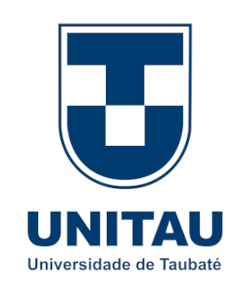DEVELOPMENT OF AN ALGORITHM TO AUTOMATE FAULT ANALYSIS IN THE AUTOMOTIVE INDUSTRY
DOI:
https://doi.org/10.69609/1516-2893.2025.v31.n2.a4040Palabras clave:
Linha de produção, Automação, Análise de falha, AlgoritmoResumen
Industry tries to control all the variables involved in its processes in order to prevent its most varied products from deviating from the conformity normally recommended by the quality teams. When a defect occurs in a given product, time, manpower and, above all, money are often wasted, because a production line that stops is much more expensive than one that runs without defects. The aim of this research is to develop an algorithm capable of automating the analysis of electrical faults in a vehicle. To this end, the results of a survey of the faults repaired by the electrical systems analysis team on a production line in a premium car factory in the interior of the state of Rio de Janeiro over a three-month period were taken into account, and the four most recurrent faults with the greatest impact on the factory's quality indicators were selected from a list of the "top ten". Once the unanalysed defects had been identified, an algorithm was developed to analyse each of them in detail with their respective outputs. Automating this analysis saves time because instead of searching for possible causes, as technicians do, this algorithm guides the user directly to the most likely cause. At the end of this application, the result is a saving of time in these analyses, which can last from hours to days and have an impact not only on quality indicators, but also on efficiency and the delivery of vehicles to customers.
Descargas
Métricas
Citas
CRISTEA, G.; CONSTANTINESCU, D.M. A comparative critical study between FMEA and FTA risk analysis methods. IOP Conf. Ser. Mater. Sci. Eng. 2017, 252, 012046.
DOS REIS M.D., GODINA R., PIMENTEL C., SILVA F.J., MATIAS J.C. A TPM strategy implementation in an automotive production line through loss reduction.Procedia Manufacturing. 2019; (1)38: 908–915.
ENZI, A., KHAN, S. A., Automated Production Line Reliability Analysis of the Crankshaft Manufacturing Process. Advances in Science and Technology Research Journal 2022, 16(1), 15–27 https://doi.org/10.12913/22998624/143936 ISSN 2299-8624, License CC-BY 4.0
FUPING Z.; YIRAN, M.; GUOQING, P. "An Automatic Analysis Framework of Detailed-level Software Fault Modes and Effects Based on Code Model", 2021 IEEE 21st International Conference on Software Quality, Reliability and Security Companion (QRS-C), pp.127-132, 2021.
HAN, X.; ZHANG, J. A combined analysis method of FMEA and FTA for improving the safety analysis quality of safety-critical software. In Proceedings of the 2013 IEEE International Conference on Granular Computing (GrC), Beijing, China, 13–15 December 2013; IEEE: Piscataway, NJ, USA, 2013; pp. 353–356.
JUEZ, G.; AMPARAN, E.; LATTARULO, R.; RASTELLI, J.P.; RUIZ, A.; ESPINOZA, H. Safety assessment of automated vehicle functions by simulation-based fault injection. In Proceedings of the 2017 IEEE International Conference on Vehicular Electronics and Safety (ICVES), Vienna, Austria, 27–28 June 2017; IEEE: Piscataway, NJ, USA, 2017; pp. 214–219.
LI, S.; FREY, M.; GAUTERIN, F. An Innovative Technique for Fault Analysis of Electric Automated Vehicles. Vehicles 2024, 6, 1995–2010. https://doi.org/10.3390/vehicles6040098.
LIWEI, Z.; XIANJIN, H.; YANNAN, Y.; CHEN, X.; JIE, L. Summarize of Electric Vehicle Electric System Fault and Fault-tolerant Technology. TELKOMNIKA Indones. J. Electr. Eng. 2014, 12, 1094–1099.
PAPADOPOULOS, Y.; D. PARKER, D.; GRANTE, C. "Automating the failure modes and effects analysis of safety critical systems," Eighth IEEE International Symposium on High Assurance Systems Engineering, 2004. Proceedings., Tampa, FL, USA, 2004, pp. 310-311, doi: 10.1109/HASE.2004.1281774.
PEETERS, J.; BASTEN, R.J.; TINGA, T. Improving failure analysis efficiency by combining FTA and FMEA in a recursive manner. Reliab. Eng. Syst. Saf. 2018, 172, 36–44.
PENG, W.; YU, L.; LI, Y.; LIU, Y.; HUANG, H.Z. Application of FMECA and FTA in the fault diagnosis for diesel engine. In Proceedings of the 2012 International Conference on Quality, Reliability, Risk, Maintenance, and Safety Engineering, Chengdu, China, 15–18 June 2012; IEEE: Piscataway, NJ, USA, 2012; pp. 641–643.
SHI, J.L., LU, Z.C., XU, H.H., REN, M.M., Shu, F.L.Comparing Fault Tree Analysis methods combined with Generalized Grey Relation Analysis: A new approach and case study in the automotive industry. Advances in Production Engineering & Management ISSN 1854-6250 Volume 18, Number 4, December 2023, pp 462–474 https://doi.org/10.14743/apem2023.4.485
WEI Z., FENG Y., HONG Z., Product quality improvement method in manufacturing process based on kernel optimization algorithm, International Journal of Production Research 55(19) (2017), 5597–5608.
Descargas
Publicado
Cómo citar
Número
Sección
Licencia
Derechos de autor 2025 Iuri Caetano Frederico, Luis Fernando de Almeida, Francisco José Grandinetti, Alvaro Manoel Souza Soares

Esta obra está bajo una licencia internacional Creative Commons Atribución-NoComercial-SinDerivadas 4.0.
A submissão de originais para este periódico implica na transferência, pelos autores, dos direitos de publicação impressa e digital. Os direitos autorais para os artigos publicados são do autor, com direitos do periódico sobre a primeira publicação. Os autores somente poderão utilizar os mesmos resultados em outras publicações indicando claramente este periódico como o meio da publicação original.




